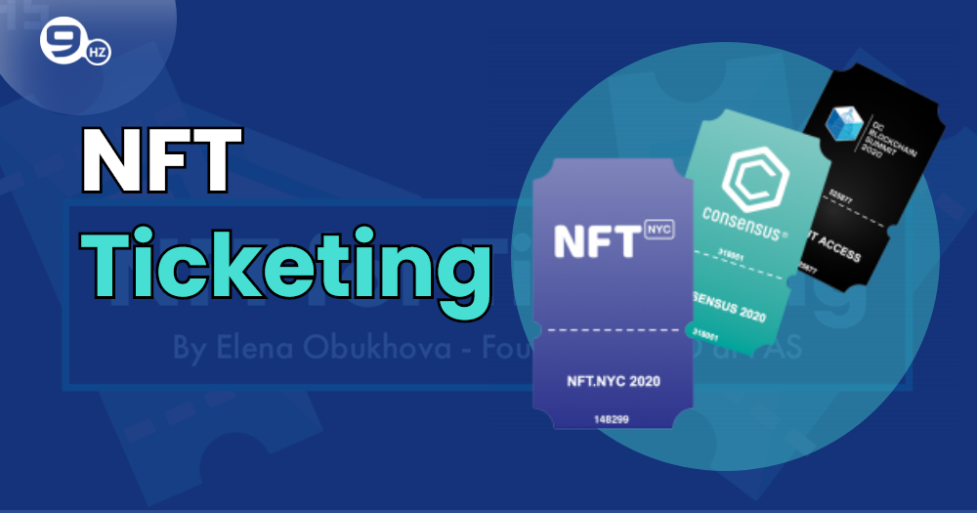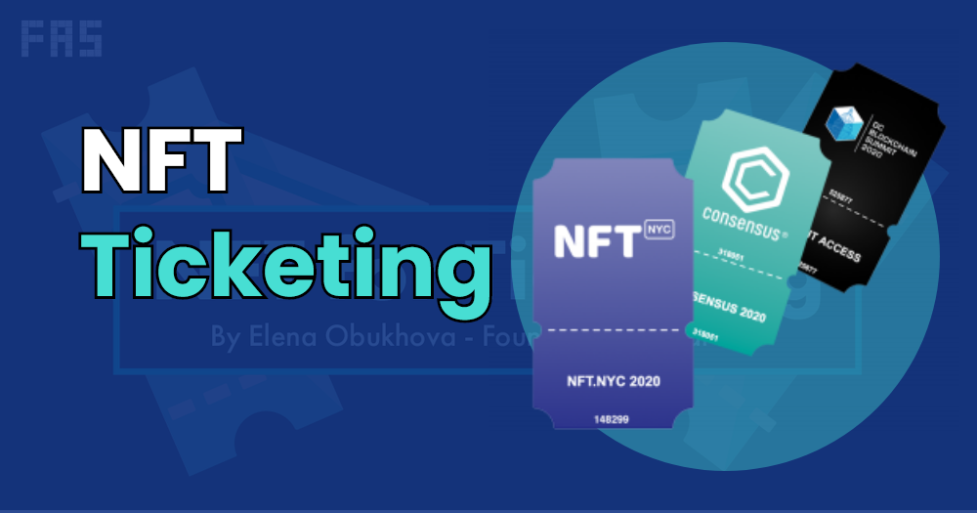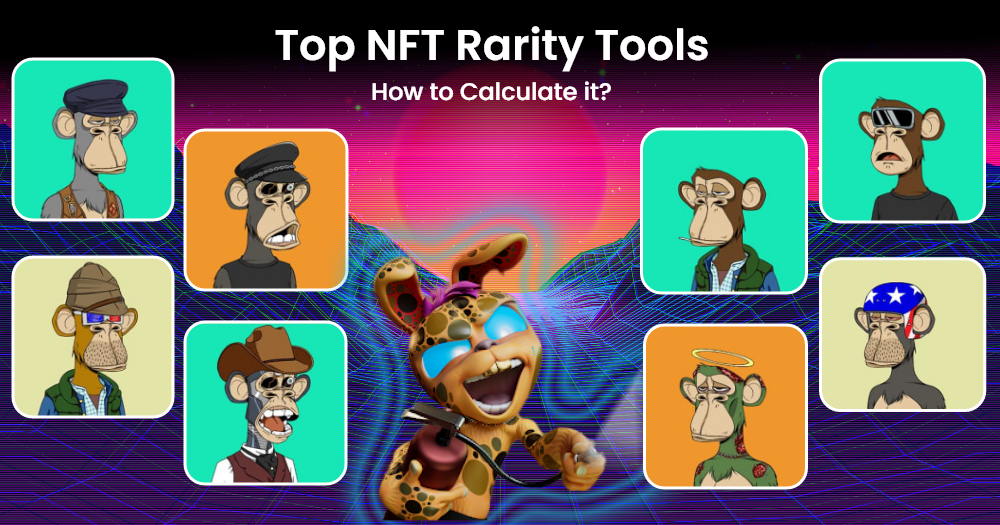Blockchain continues to evolve with multiple iterations, becoming highly advantageous to contribute to the innovation of more feasible use cases. NFTs or non-fungible tokens are one of the popular blockchain-powered digital tokens that are getting huge traction. Due to such rising NFT popularity and its mass adoption, the global NFT market is valued at $11.3 billion as per the research carried out by global research and consulting firms, and this value is expected to swell to $231 billion by the end of 2030 (according to verified market research’s report).
While NFTs are being utilized across, from gaming to real estate and entertainment, the ticketing industry is making the best use of non-fungible tokens. Before the advent of NFTs, the QR code system was prevalent in the ticketing industry, which had some extreme challenges associated with its mechanism. Now that NFTs are achieving mainstream adoption, event organizers, artists and agencies are leveraging NFT tickets. Let’s understand the whole concept of NFT ticketing and how it disrupts the existing infrastructure of the NFT industry.
What is an NFT-Powered Ticket?
NFTs is the abbreviation for non-fungible tokens. These are the cryptographic tokens representing the unique ownership of digital assets such as art, tweets, digital signatures, etc. Furthermore, NFTs support the tokenization of real-world assets and the verifiable proof of ownership details remain stored in the blockchain’s immutable ledger. At a time, an NFT can have only a single owner and the ownership details cannot be altered or manipulated for individual benefits.
Regarding ticketing, NFTs-powered tickets represent customers’ one-time access to any event. With NFTs, guests enjoy an enhanced fan experience as NFTs offer additional perks like exclusive merchandise, timely meet and greet and more. For event organizers, artists and stakeholders, NFTs unlock exciting opportunities such as closer relationships with fans and ongoing royalties. NFTs, moreover, help ticket buyers to preserve NFT-based tickets to revive memories.
Read Also – What is Tokenomics?
How Does the NFT Ticketing Work?
Event organizers can leverage blockchain’s potential being a distributed and immutable ledger to coin the desired amount of tickets and proceed to sell them via conventional modes like promotion on the website or organizing sales on applications. On top of ticket management, NFTs allow the event organizers and artists to code a range of things into NFT-based tickets, including the unique image of tickets, ID number, method of verification and selling approach(bidding or selling at a fixed price).
Guests or ticket buyers can store NFT-backed tickets similar to how they manage physical tickets. As soon as the users complete the transaction on buying the ticket, the details about the ticket have been transferred to their wallet just like ERC tokens and Bitcoins). These NFT tickets are easy to access on the wallet whenever required. Also, ticket owners have the authority to manage the NFT tickets like buying, selling or returning those tickets and showing the tickets to get entry to the respective event.
However, once the event is done, the tickets become invalid and a version of it remains in the wallet that users can keep as a mark of memory. Looking into the technical structure of NFT ticketing, here’s what it looks like:
Discuss Your NFT Project Idea
Request A Free Quote
What are the Challenges Associated With the Traditional Ticketing System?
1. Scalping
Scalping or black marketing is an illegitimate activity that involves buying tickets at a lower price from the supplier and reselling those tickets at higher prices. Those indulged in black marketing of tickets may use renowned platforms like Viagogo, OLX and Craigslist to accomplish their purpose. The majority of research and reports also say that every one of the five ticket buyers is a reseller and is mostly male since they frequently buy and sell event tickets.
2. Forgery
According to a CNBC report, at least one out of ten event tickets bought in the USA are fake. The more hyped an event is, the higher probability is there that the tickets are fake. While QR-code-based ticketing has various ticket verification mechanisms in place, blockchain is one more step closer to ensuring the high authenticity of tickets.
3. Zero Exchange Protocol
Ticket industries rely on various unrelated web platforms to sell tickets. Due to a range of unique portals, the event organizers fail to keep a track of clients and exchange data on more than one supplier since a centralized QR ticketing system has no exchange protocol integrated into their infrastructure that can interconnect the web platforms, allowing them to communicate and share arbitrary data to the ticket sellers.
4. Client Trust
As per another CNBC’s report, two-thirds of total event ticket buyers fear being a victim of ticket scams, buying a fake ticket or encountering other types of scams. The problem of fake tickets becomes high when customers attempt to buy expensive tickets in another city or country. Hence, trust in the traditional ticketing system is always at stake.
5. High Service Cost
The traditional QR ticketing system has intermediates involved in the process, which leads to high service costs. When buying tickets, the users do not pay the charges to get entry to the event, but they require to pay for the convenience such as users do not need to visit the event place physically or stand in the queue to buy tickets. The service cost in the tickets includes operating costs, delivery charges, risk premium, etc that are hidden in the overall ticket price.
How Does NFT Transform the Ticketing Industry?
NFT-enabled Ticketing mechanism works closer to the real-world event tickets that are represented through a piece of paper. These tickets have non-fungible attributes, which means they are only valid for a single event. Also, NFT tickets are solid corresponding to the event capacity limit and once the limit is reached, users cannot buy any ticket.
Talking about the challenges with traditional ticketing, the tickets pass through a variety of distribution channels with different rulesets. Hence the third parties or the resellers appointed at these distribution channels can increase the ticket price and gain benefit from it.
Blockchain drives transparency to the ticketing system, allowing the event organizers and ticket buyers to track where the status of tickets, whether available or sold and fetch information related to the primary and secondary market. Plus, event organizers can ensure that their tickets are being sold to the right ticket buyers at a valid price.
An NFT-based ticketing system can also utilize smart contracts, helping the event organizers to limit the resale value of tickets and associated fees. Note that smart contracts are self-executing deterministic programs that automatically execute once the conditions encoded in the smart contracts are met. With smart contracts, organizers can set up rules related to how royalty will be imposed on tickets’ sale on the secondary market
Under the influence of blockchain’s popularity, numerous enterprises have been adopting NFTs and shifting to digital NFT tickets rather than traditional tickets; QR-based and paper tickets. The company is focused on building NFT ticketing solutions and the NFT marketplace for world-renowned brands like Kings of Leon, XXtentaction and Maroon 5.
To leverage the benefit of the NFT ticketing system, event managers should better use a user-friendly mobile app to assist mobile phone users. The ticketing solution can be built on a variety of robust and decentralized blockchains with voluntary integration with ticket selling and distribution platforms like Facebook, Instagram, Amazon, Snapchat and Stubhub.
What are the Main Advantages of NFT-Based Tickets?
Adoption of NFT and its underlying blockchain technology into the event and ticketing industry is advantageous for both the event organizers and the guests. From improving the condition of the ticket market to boosting sales and eliminating the impacts of fake tickets. Out of the numerous benefits, the following are the main benefits.
1. Prevention of Fake Tickets
Blockchain is a distributed ledger technology that records every data related to NFT ticket distribution in the immutable ledger records, providing a single data source to both the ticket buyers and the event coordinators.
With that, the NFT ticketing system facilitates quick authentication of tickets to prevent the act of creating and distributing fake tickets.
For example, event organizers can keep a check on the ticket status, from its creation to reaching the final owner. Likewise, the ticket buyers can check if the ticket they are buying belongs to the right owner. All these happen without the involvement of any third-party authority.
2. The Programmability of NFT Tickets
NFTs are digitized version of tickets that are built using computer programs. It means that NFTs are based on codes with customized rules for every action, from ticket generation, selling, ownership transfer and ticket reselling. Also, NFT has rules ensconced to handle royalties on both primary and secondary market sales.
As a practical example, event organizers can code royalty distribution rules in the smart contracts for future NFT ticket reselling and benefit from the profit users generate when they resell the tickets in the secondary market. Moreover, if buyers demand the unique form of tickets where reselling is prohibited through a certain set of rules designed to prohibit reselling.
Convert Your NFT Project Idea into Reality
Request A Free Quote
3. Seamless ticket creation
One of the major benefits NFT tickets brings is the rapid speed of ticket creation and issuance on various ticket distribution channels. While paper-based tickets require days or even weeks to become available to potential buyers, NFT tickets are created and minted in less than a minute. With such speed and convenience, NFT ticketing shows up as a cost-effective and easy alternative that highly contributes to revamping the ticketing industry.
How Do NFT Tickets Transform the Experience for Event Organizers?
First, let’s check out the benefits the NFT ticketing system offers for the event coordinators:
1. Developing Artistic Tickets
Traditional tickets are just proof of someone’s ability to enter an event. Hence, such tickets are neither appealing nor have many functionalities. On the flip side, NFT tickers are designed in a more artistic manner using 3D graphics and realistic images and these are rich in functionalities.
2. Profiting from Ticket Reselling
We have already discussed how event organizers can use smart contracts to earn revenue on reselling tickets. The ticket sellers can code a program in a smart contract that imposes a specific percentage of the ticket’s total price as a surcharge whenever the ticket owner sells an NFT ticket to someone else. The surcharge deducted will be automatically credited to the event organizer’s wallet.
3. Better Online Events Experience
A centralized system fails to protect the attendees in the online events against the downsides like the collection of data and sharing the same with the third party. Premium subscriptions to online events, webinars and online classes may offer better safeguarding policies, but users who attend the events for free live under risks related to security and privacy. With blockchain, the event organizers have complete control over the content and they have the right to decide who can access the content and who can’t.
4. Convenience in Ticket Distribution
NFT tickets are easy to sell and distribute across the customers for these tickets can be quickly shared via messaging and QR codes on the desired distribution platforms. However, unlike simple QR tickets, NFTs protect the ticket from activities, including ticket counterfeiting, unauthorized reselling and manipulation in the original ownership.
5. Easy Authentication
Apart from the data authenticity, there are few services in the blockchain space that authenticates the quality of food, services, gadgets and vehicles. For the ticketing industry, event organizers can utilize the same services to create tools that help the customers, stakeholders, and resellers to authenticate the tickets before buying,
6. KYC and AML Compliance
Event organizers, besides the security and immutability of blockchain technology, can sell NFT tickets under KYC and AML compliances and derive the maximum benefit out of their ticketing system. The rules related to KYC and ML can be programmed into a smart contract that would integrate several identity verification services while maintaining the customers’ anonymity.
How Do NFT Tickets Transform the Experience for Guests?
Following are the benefits of NFT tickets for guests:
1. Direct Perks and Incentives from Event Organizers
As NFTs are based on blockchain and initial ticket sales are associated with buyers’ web3 wallets, the event organizers can easily track the original NFT ticket buyers. Thereby, the ticket-selling brands can launch a variety of rewards and loyalty programs to encourage the ticket buyers to keep coming back. These perks and incentives can be in numerous forms like discounts, loyalty programs and access to VIP seats at the events.
2. Opportunity to Sell NFT Tickets
People have the hobby of collecting event tickets as memories, which is unfortunately not possible with QR-based NFT tickets. With NFTs, ticket buyers can sell the event tickets (even after the event is over) as collectibles to the interested buyers with immutable ownership provided via NFT technology.
3. Reselling of Tickets
Ticket buyers sometimes cannot attend the event due to some reason and hence they have to sacrifice the price of the ticket since it becomes invalid once the event is done. NFT provides ticket buyers an easy path to reselling the tickets to attendees who are interested in the event. Reselling of tickets can be carried out either on an NFT marketplace or directly through an NFT ticketing platform where the tickets were created and distributed.
4. Anonymity and Higher Security
Unlike traditional ways of ticketing, buying NFT tickets does not require the buyers to disclose their real name, address, contact number and other details. Simply with the wallet address, anyone can buy the NFT tickets. NFT platforms, when built on vast networks like Ethereum, Polkadot and Binance chain, these platforms guarantee high security, making it impossible for hackers to enter the network’s ecosystem and cause any mutilation.
Top Companies Offering NFT Ticketing Related Services
Numerous brands and organizations have started to leverage the benefits of NFTs and NFT technology for their ticketing system. Among the top companies, we have listed a few companies that are taking the NFT industry by storm with some creative NFT use cases.
1. “Dynamo” The Football Club
Dynamo is the first popular football club that leverages the NFT ticketing system. Earlier, in July 2021, the club launched three hundred million NFT-based tickets for their fans on multiple social media networks. Their tickets were available on the Binance platform. In the future, Dynamo plans to sell at least 25% of total tickets as NFT (the company has the authority to make modifications to the ticket selling rules.
2. Dallas Mavericks
The owner of Dallas Mavericks and a popular billionaire, Mark Cuban recently said in a statement that he is interested in participating in the NFT next season and grabbing the opportunities that the NFT ticketing system brings to industries. He has plans to create the most engaging and best moment-capturing NFT tickets that any brand has ever created. Moreover, he is willing to create and release tickets for Dallas Mavericks matches.
3. Kings of Leon
The popular American rock band, Kings of Leon released their studio album named “when you see yourself” together with launching three different NFT collections. The first NFT was the audio recording of the album’s song, the second NFT was a limited edition of the album’s animated digital cover and the third type of NFT featured 18 “golden tickets” that guaranteed the NFT ticket buyers to book front-row seats in any Kings of Leon’s live concert. In addition, there were some perks such as a VIP experience, a chauffeur facility to reach the event and more.
Build Your NFT Ticketing Platform With NineHertz
NineHertz offers a wide range of NFT development services to cater the unique NFT-related requirements across many industries. With a core panel of NFT experts and full-stack developers, the company specializes in building futuristic NFT-powered solutions, including cross-chain NFT marketplaces, NFT P2P trading platforms, and more importantly, NFT ticketing platforms.
Our developers have expertise in building future-ready NFT ticketing platforms with customized features such as seamless NFT minting, and trading NFTs, besides providing the users a gateway to the web3 ecosystem. Following is a brief introduction of features that an ideal NFT ticketing platform must have:
1. Rewards
With our NFT ticketing platform, ticket holders can claim rewards and receive them in the form of in-platform collectibles that owners can sell again to generate profit. These collectibles can be NFT-based art, tickets to popular events, or in-game collectibles. social media tweets, etc.
2. Royalty
Setup custom rules related to how royalty will split and benefit the event organizers on the secondary sales. This approach streamlines the royalty management idea, eliminating any chances of conflicts.
3. High protection & safety
We use blockchain and web3.0 technologies to provide the NFT ticketing platform with a safe, secure and decentralized ecosystem. With no third parties involved in the ticketing system, the owner of the platform fears no security breach and shady activities that can potentially occur on any NFT platform which is centralized.
4. Native currency
We enable unique features in the NFT ticketing platform that supports native currency within the platform. Event organizers can accept the payment in their platform-specific native currency and refund the ticket (if required) in the same native currency.
With our NFT ticketing platform, the event organizers and ticket sellers can have more visibility, better control and traceability on their ticket management system.
Hire Certified NFT Developers
Request A Free Quote
Conclusion
Like other technologies, NFT and its use cases have also evolved so far, resulting in the innovation of more feasible and innovative use cases. Tech enthusiasts are now integrating NFTs with emerging technologies like blockchain, cryptography and blockchain to make the NFT ticketing system advantageous for worldwide artists and event organizers.
As discussed, NFT is built and managed on the blockchain’s decentralized ecosystem. This attribute of blockchain makes NFTs easy to authenticate and prevents scammers from damaging a brand’s reputation with fake tickets and other downsides. Further, NFT grants the event organizers more power over the primary and secondary ticketing market, allowing them to establish good and lasting relations with the guests.
If you are looking to hire NFT development experts or want to build a customized NFT ticketing platform, connect with our NFT experts.
Great Together!










